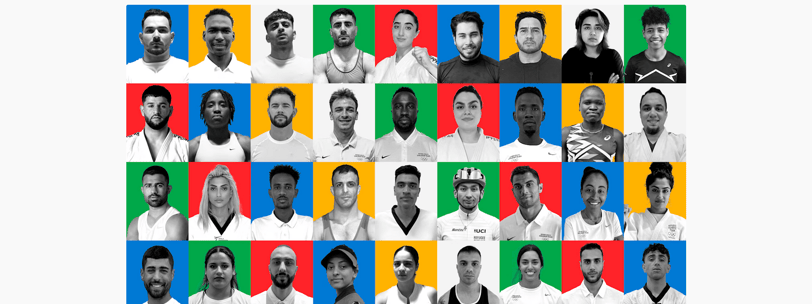The Impact and Success of the Olympic Refugee Team
5/3/20243 min read


Overview of the 2024 IOC Refugee Team
The 2024 IOC Refugee Team is a group of talented athletes who have been forced to flee their home countries due to conflict, persecution, or other forms of adversity. These athletes, despite facing numerous challenges, have managed to excel in their respective sports and have been given the opportunity to compete on the world stage at the Olympic Games.
With less than two months to go until the start of the games in Paris, the International Olympic Committee (IOC) announced its largest refugee team to date. This year, 36 athletes will form the IOC Refugee Olympic Team in Paris 2024, representing the world's displaced population of over 100 million people at this summer's Olympic Games in Paris 2024. The 36 athletes come from 11 different countries of origin, and are currently hosted by 15 different National Olympic Committees. In Paris, they will compete in 12 different sports: aquatics (swimming), athletics, badminton, boxing, breaking, canoe (slalom and sprint), cycling (road), judo, shooting, taekwondo, weightlifting, and wrestling (freestyle and Greco-Roman)
The International Olympic Committee (IOC) created the Refugee Olympic Team in response to the global refugee crisis and as a way to promote inclusivity and solidarity within the Olympic movement. The team made its debut at the 2016 Rio Olympics and has since become a symbol of hope and resilience for displaced individuals worldwide.
Historical Background: Why the IOC has an Olympic Refugee Team
The decision to establish an Olympic Refugee Team was driven by the recognition that millions of people around the world have been forced to leave their homes due to conflict, violence, and persecution. The IOC, as the governing body of the Olympic Games, felt a responsibility to address this issue and provide a platform for refugee athletes to showcase their talent and determination.
The idea of creating a refugee team was first proposed by the IOC President, Thomas Bach, during the 2015 United Nations General Assembly in New York. Bach emphasized the power of sport in bringing people together and promoting social integration. He believed that by including refugee athletes in the Olympics, the world could send a strong message of solidarity and support to those who have been displaced.
In 2016, the IOC officially announced the formation of the Refugee Olympic Team for the Rio Olympics. The team consisted of ten athletes from four different countries: South Sudan, Syria, Ethiopia, and the Democratic Republic of Congo. These athletes competed in various sports, including athletics, swimming, and judo.
The creation of the Olympic Refugee Team was met with widespread support and admiration. It provided a platform for refugee athletes to showcase their skills and stories, raising awareness about the challenges they face and inspiring others who may be in similar situations.
Impact and Success of the Olympic Refugee Team
The inclusion of the Refugee Olympic Team in the Olympic Games has had a profound impact on both the athletes and the global community. It has given hope and motivation to millions of refugees around the world, showing them that their dreams and aspirations are still within reach, despite the difficult circumstances they may face.
For the athletes themselves, being part of the Olympic Refugee Team has been a life-changing experience. It has provided them with a sense of belonging, purpose, and identity. It has also allowed them to connect with other athletes and individuals who share similar experiences, fostering a sense of camaraderie and support.
Since its inception, the Olympic Refugee Team has achieved remarkable success. In the 2016 Rio Olympics, Yusra Mardini, a Syrian swimmer and member of the team, won her heat and advanced to the semifinals of the women's 100-meter butterfly event. This achievement not only showcased her talent but also highlighted the resilience and determination of refugee athletes.
In the 2020 Tokyo Olympics, despite the challenges posed by the COVID-19 pandemic, the IOC once again selected a team of refugee athletes to participate. The team consisted of 29 athletes from 11 different countries, competing in various sports such as athletics, judo, karate, and boxing.
Conclusion
The creation of the Olympic Refugee Team by the IOC has been a significant step towards promoting inclusivity, solidarity, and support for refugees worldwide. It has provided a platform for talented athletes who have been forced to flee their homes, allowing them to showcase their skills and inspire others.
The participation of the 36 athletes will undoubtedly serve as a reminder of the resilience and determination of refugee athletes and the power of sport to unite and uplift individuals in the face of adversity.
Contacts
Elinah_Kimani@ezkjourneys.com
EZK Journeys
The Journey of a Thousand Miles begins with a single step
